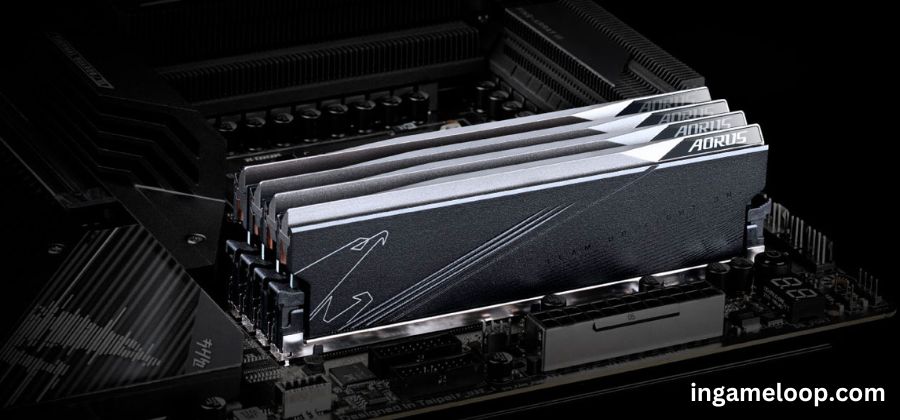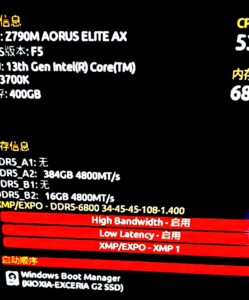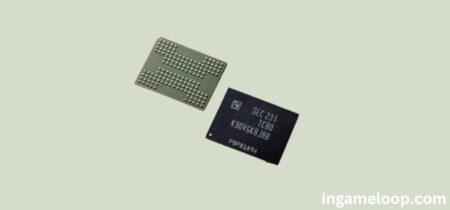
In a recent development, Gigabyte has rolled out a crucial firmware update aimed at rectifying a bug that has been plaguing DDR5 memory modules on their 600 and 700-series motherboards. This bug has been identified as a disruption in the SPD (serial presence detect) data, responsible for managing XMP/EXPO profiles. Users came to Baidu Forums to detail the issue, reporting difficulties in proper recognition of memory modules, with some experiencing erratic behavior and even false RAM readings.
Reports of this issue initially surfaced among Chinese consumers, who encountered various anomalies while using Gigabyte motherboards. One user, employing the Z790 Aorus Elite AX model, detailed his struggle to have the memory detected. After several attempts, the motherboard’s SPD malfunctioned, resulting in a misleading detection of 384GB of RAM, a clearly erroneous figure.

These incidents prompted local users to dub the issue as a ‘motherboard burning’ problem, fearing that it might lead to improper booting in some cases. The matter gained significant attention in the Chinese media, eventually compelling Gigabyte to address the issue through their official AORUS Bilibili account. However, instead of taking direct responsibility, Gigabyte pointed towards memory manufacturers, citing a lack of “SPD Write Protection” implementation as the root cause.
It’s important to note that Gigabyte did not single out any specific memory brand or kit, making it challenging to identify affected RAM modules. Nevertheless, the company assures users that no permanent damage is caused to either the motherboard or the RAM. The issue primarily disrupts memory clock speeds and capacities due to bugs within the SPD mechanism. Gigabyte has also suggested an easy fix:
“Recently, we have noticed that some users on the Internet have reported that memory SPD information errors will occur when using Gigabyte D5 motherboards.
We attach great importance to this feedback and will contact relevant users and communicate in depth. After GIGABYTE engineers continued testing and troubleshooting the issues one by one, we found:
- 1. Different brands of D5 memory products on the market are not unified in whether they provide “SPD write protection” settings. Some memory products do not have “SPD Write Protection” set.
- 2. When using D5 memory without “SPD Write Protection” with GIGABYTE Control Center (hereinafter referred to as GCC) software, there is a very small probability that the SPD information will be incorrect. After reproducing the fault, we have verified that this situation only affects the memory SPD firmware code and does not affect the memory hardware itself. Just refresh the SPD firmware to get the memory back to normal.
SOLUTION:
Currently, GIGABYTE has provided a new version of GCC software and BIOS for D5 motherboards. You can avoid this problem by using the latest version of GCC software and BIOS from the official website. We recommend all Gigabyte D5 motherboard users to update.”
GIGABYTE issued a statement on the DDR5 motherboard "burning" memory SPD information event, recommending that users update BIOS and GCC softwarehttps://t.co/YJCixNecNf
— 포시포시 (@harukaze5719) September 5, 2023
While this firmware update offers a solution, it raises concerns about the reliability of high-end Gigabyte motherboards. This is not the first instance of such issues, as Gigabyte motherboards were previously reported to have a hidden backdoor vulnerability. This latest incident has prompted discussions about Gigabyte’s commitment to providing robust security and support to its customer base.
In light of these developments, users are strongly encouraged to update their firmware versions promptly. This proactive approach will not only rectify the current issue but also contribute to a more secure and reliable computing experience for Gigabyte motherboard owners.







